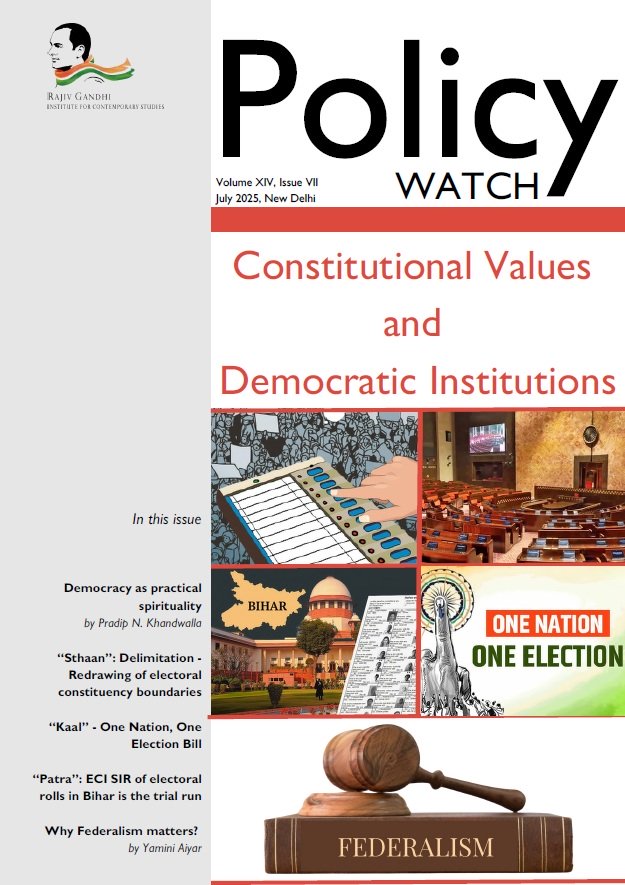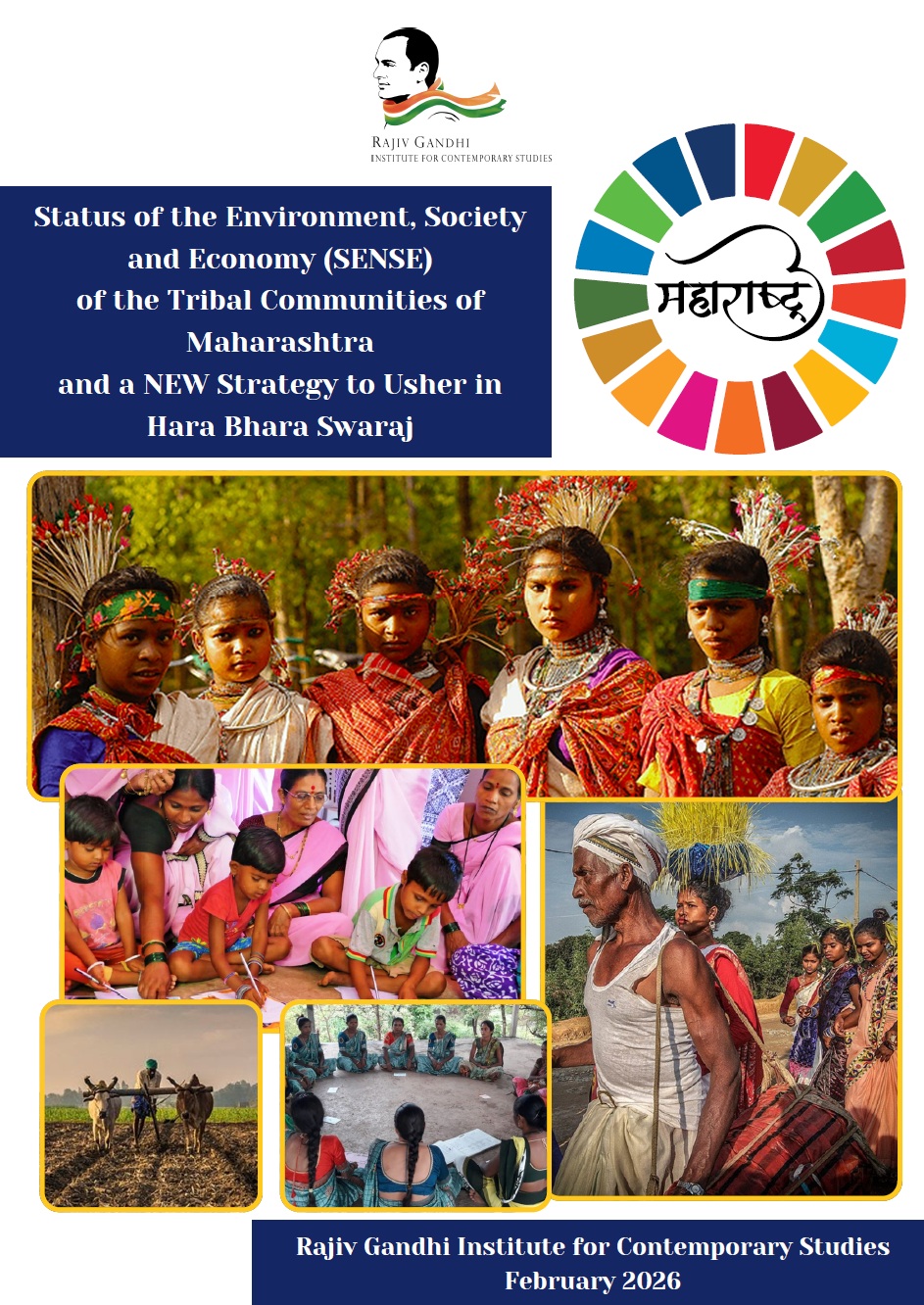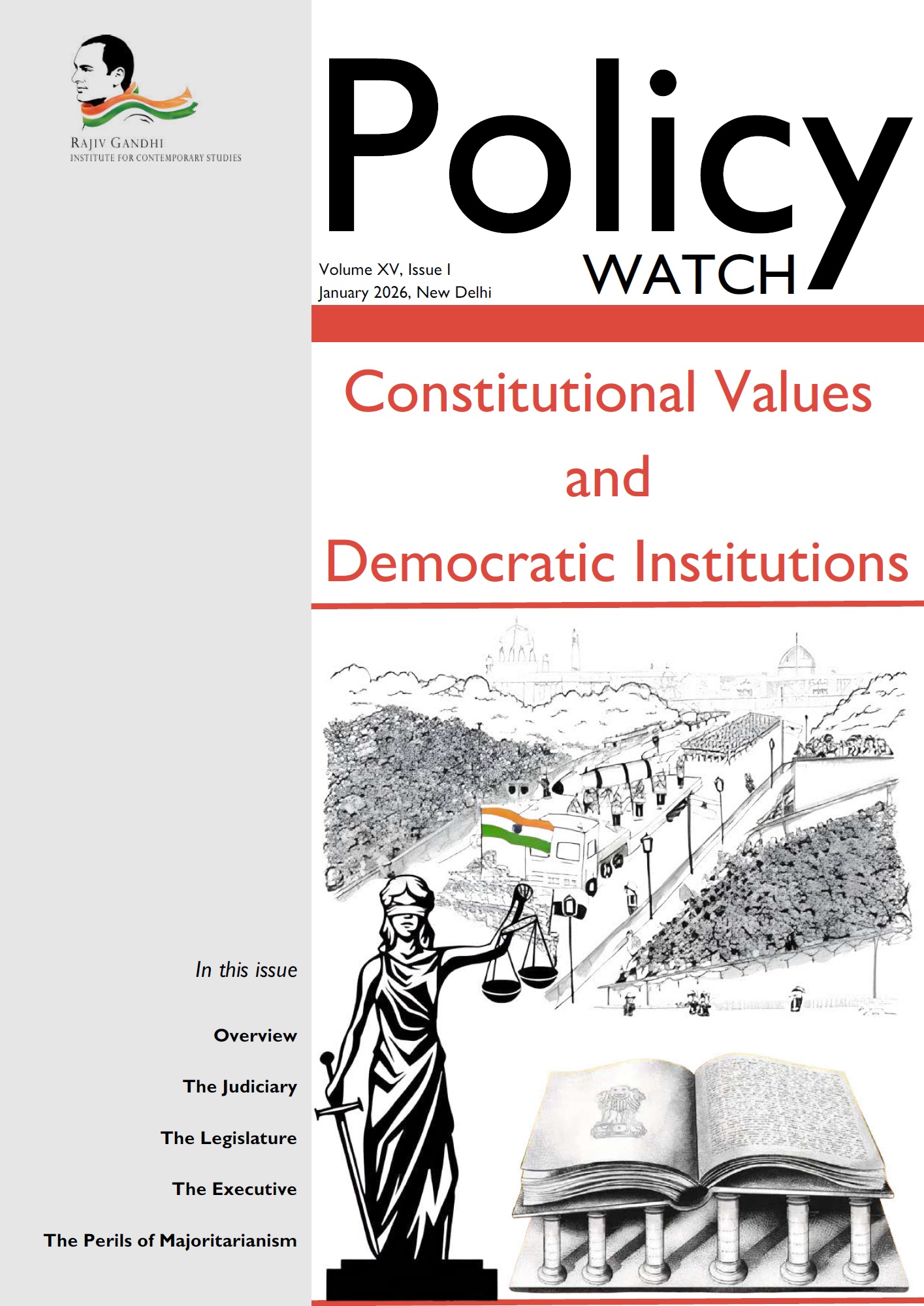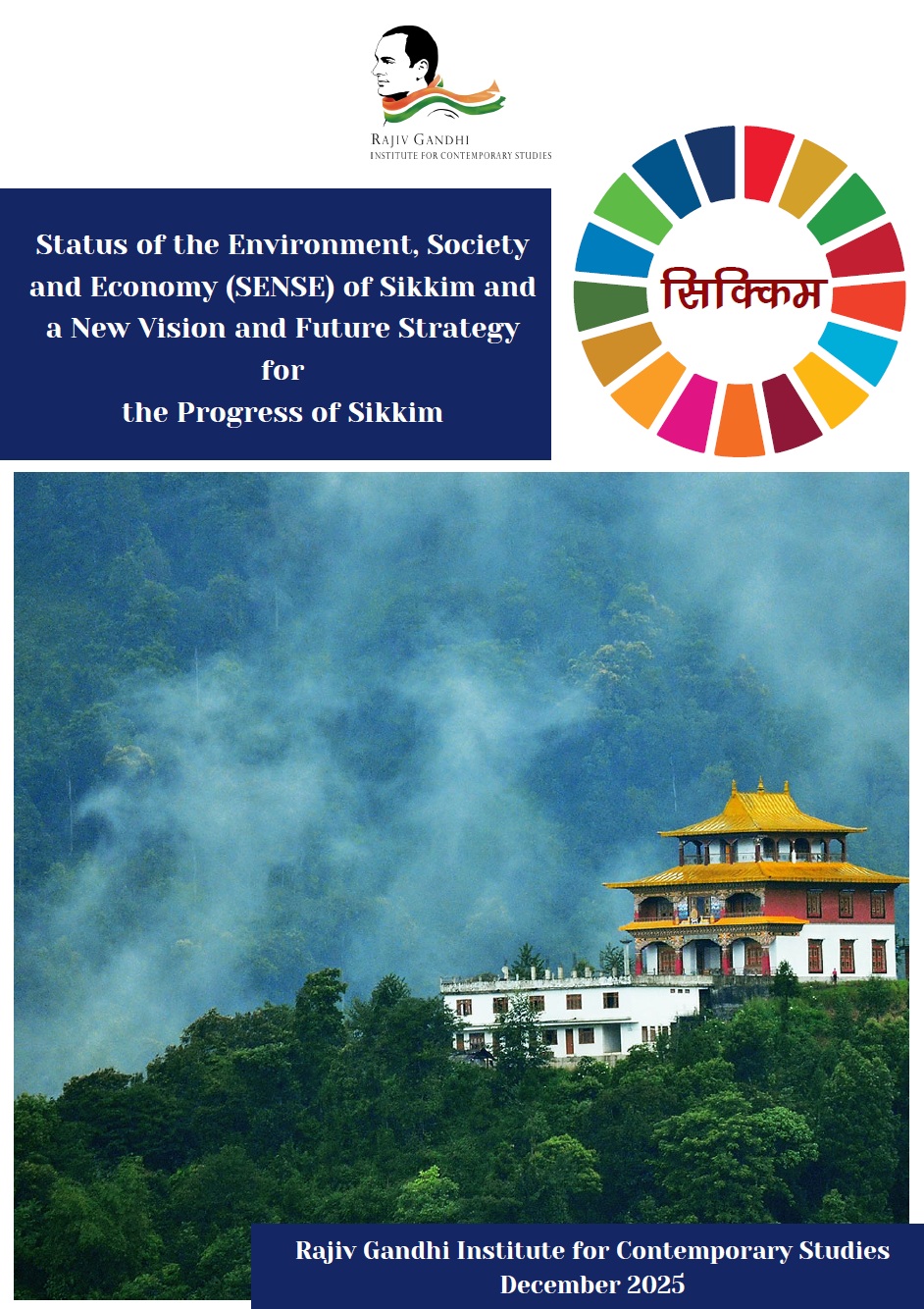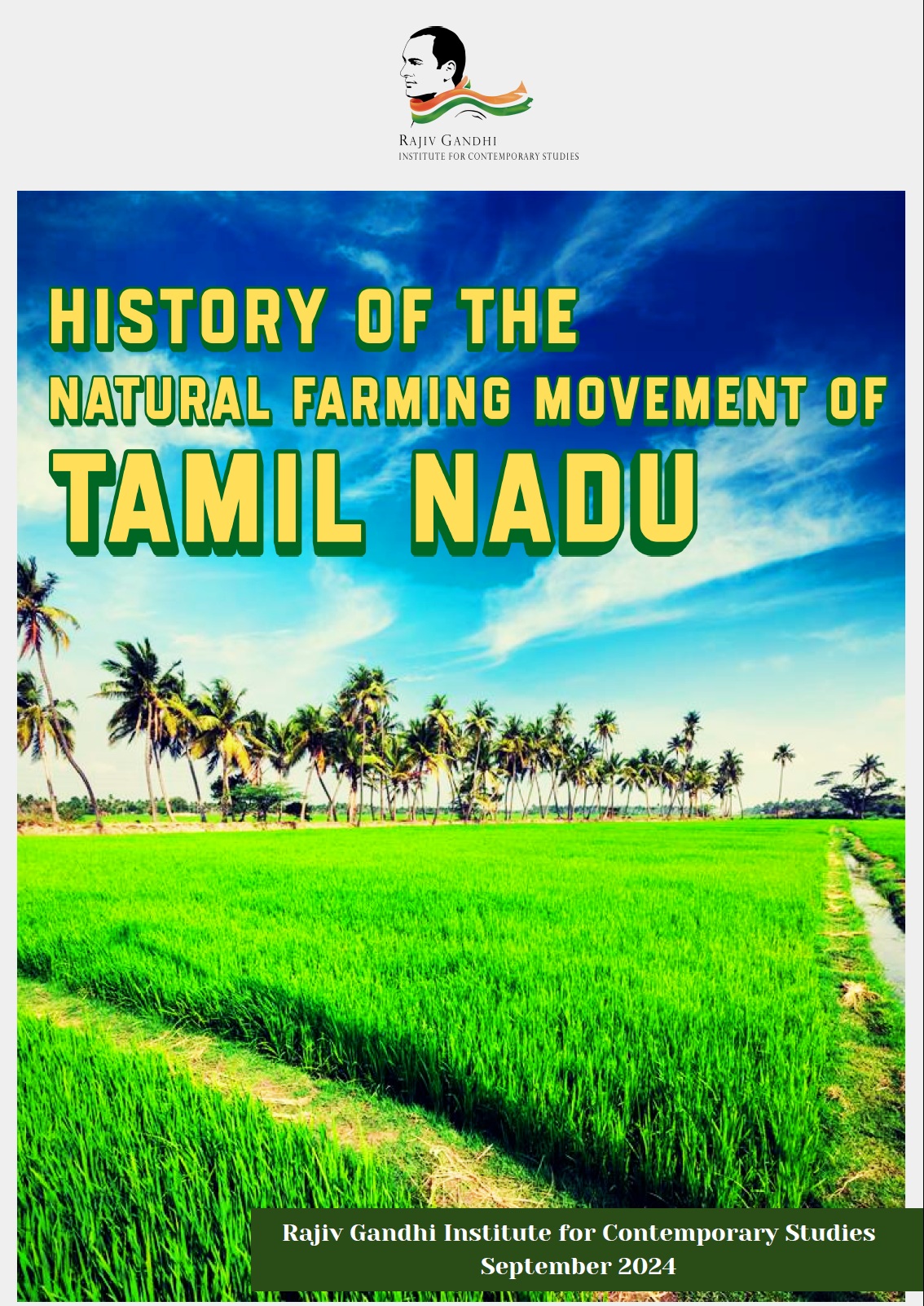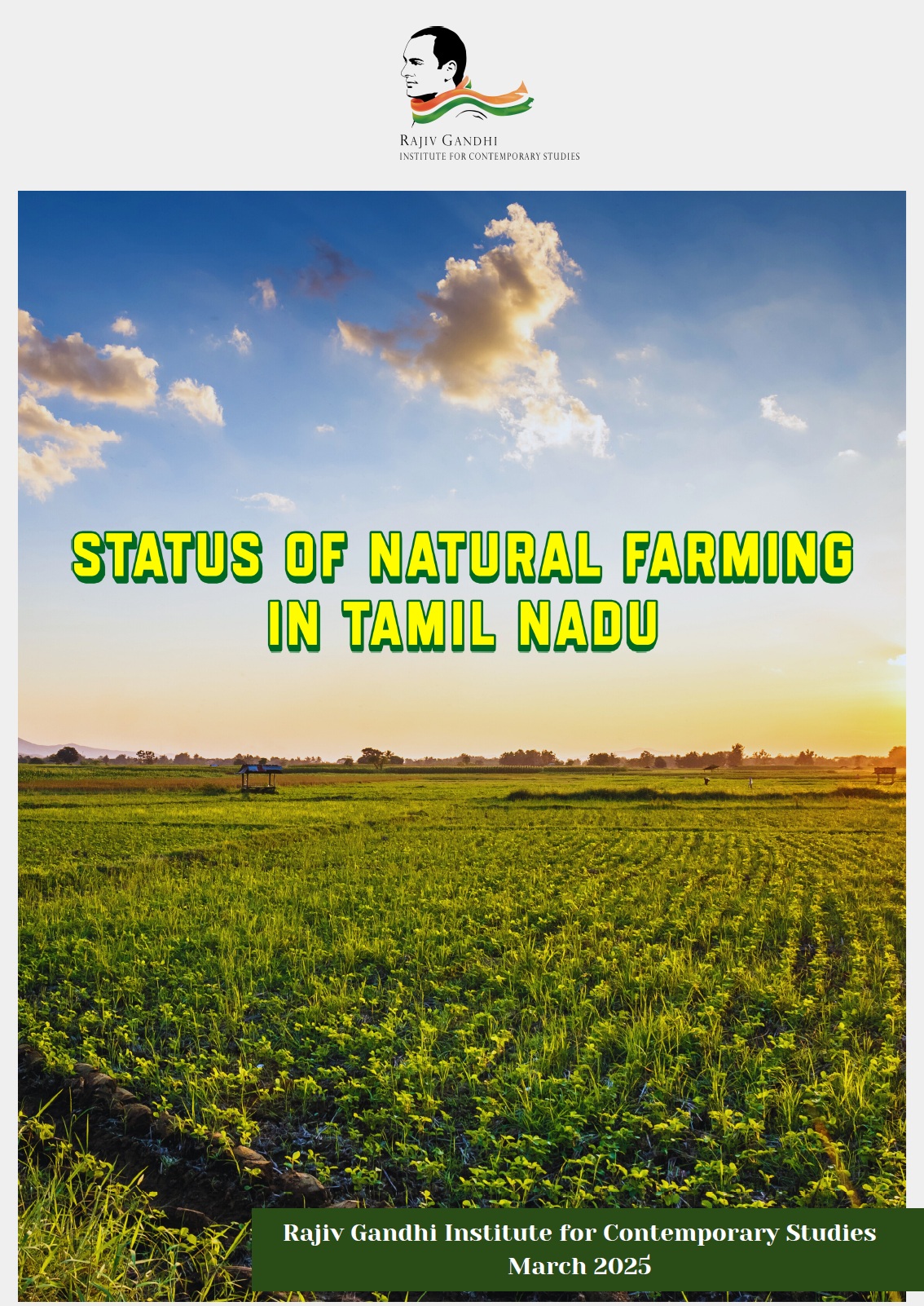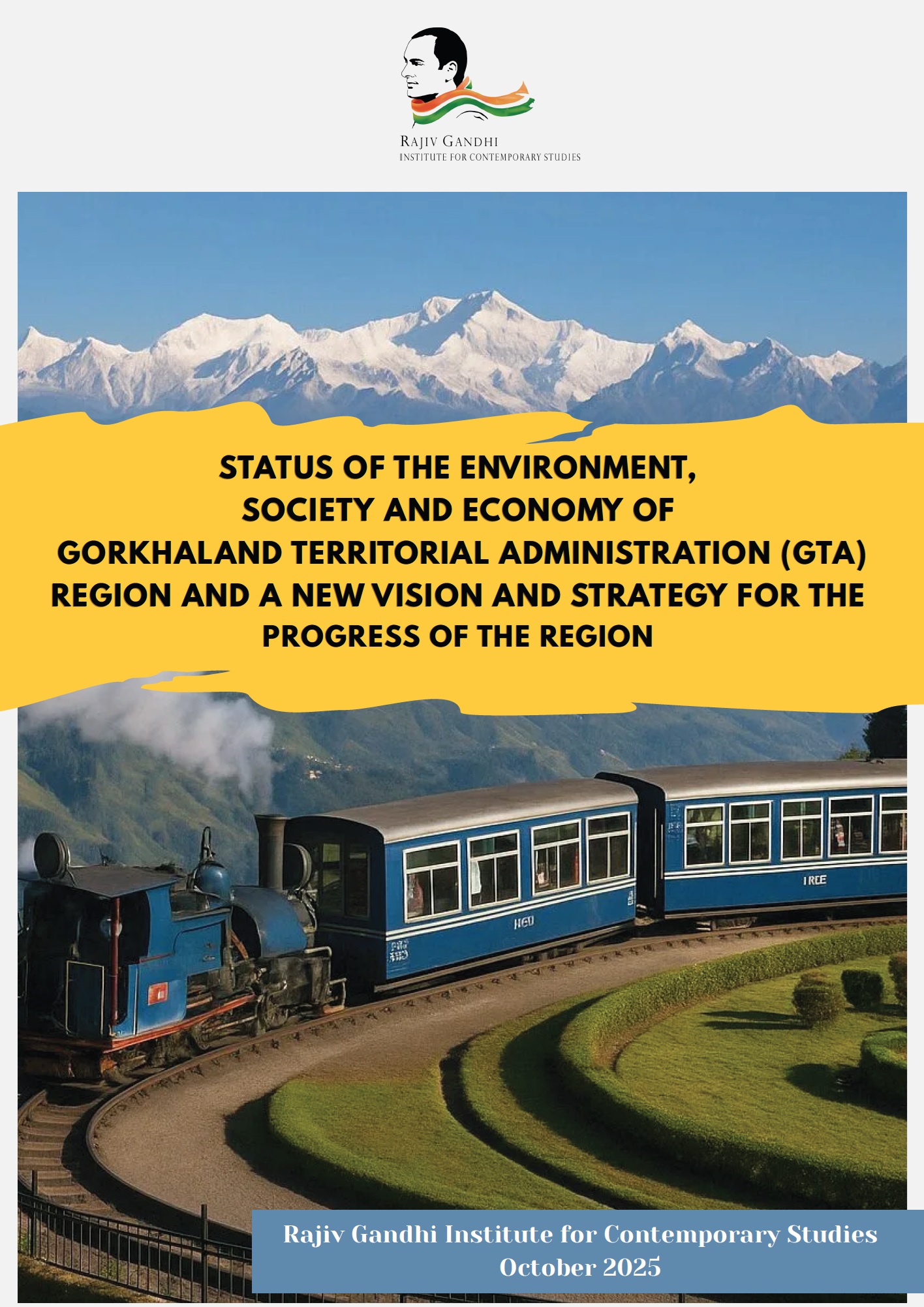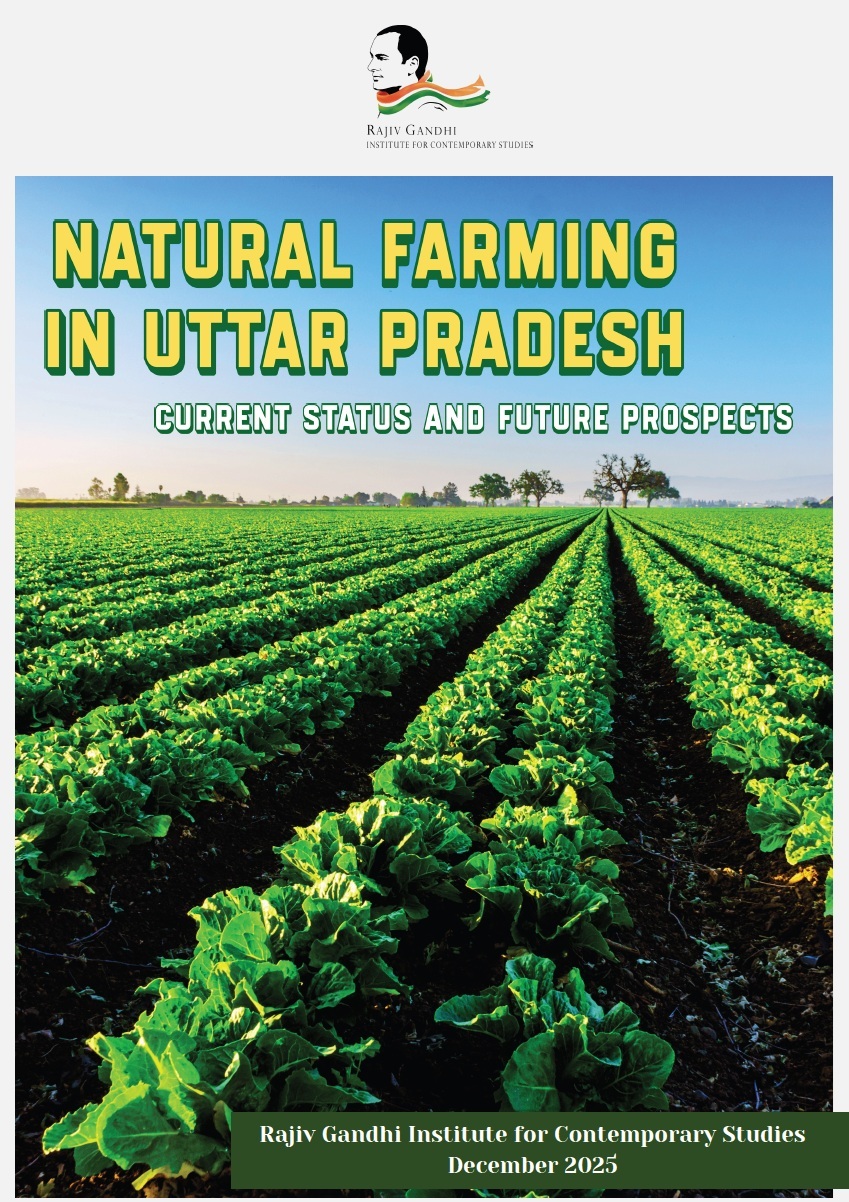The July 2025 issue of Policy Watch is on the theme Constitutional Values and Democratic Institutions. In the first article Prof Pradip Khandwalla posits the idea that the heart of democracy is practical spirituality, involving not just the material well-being of people but nurturing their deep human urges. He begins by asking – Can Indian parliamentary democracy along the Westminster model of Britain be re- designed to make it more effective in raising the growth rate of the economy and the quality of life? Before answering this question, he discusses the endemic flaws of several extant parliamentary systems including that of India.
One of his many suggestions is that each candidate for election at the local self- government level, state level, and parliamentary level, with a demonstrated record of social/public service, such as military and security personnel, and those with a stint of at least two years social service, say with a registered NGO or social enterprise or educational or health or social welfare organization or a public sector body should be given 5% of the total number of votes polled in the constituency as bonus votes, so as to attract decent people into politics. This will also incentivize political parties to seek such candidates.
In the next three articles we move from the idealistic, spiritual vision of democracy and constitutional functioning envisaged by Prof Khandwalla to the melee of politics in actual practice. We deal with the trident – trishul of “Sthaan, Kaal, Patra” to pin down and modify India’s democracy.
The Election Commission of India (ECI) is the long handle of the trishul, which has three prongs – Sthaan, Kaal, Patra” (place, time and protagonist). Sthaan or place will be modified using the Delimitation Exercise, likely to start after the Census 2026 but already rehearsed in Jammu and Kashmir. Kaal is the timing which is being sought to be modified through the One Nation One Vote ONOE Bill, already introduced in the Parliament. And Patra, or the protagonist is the voter and that is sought to be modified through the ongoing Special Intensive Revision (SIR) of the electoral rolls in Bihar. We carry an article on each of these three issues.
Through the Delimitation Exercise, yet to be launched, the “sthaan”, in the form of constituency boundaries, will be modified, perhaps in time for the 2029 general Elections. We carry an article on the Delimitation Exercise that was carried out in Jammu and Kashmir. under the Jammu & Kashmir Reorganisation Act 2019. A petition in front of the Supreme Court had contended that Section 60(1)(c) and Section 62(3) of the J&K RA 2019 were not only violative of the Constitution but also were contradictory to each other. These provisions simultaneously conferred the power of delimitation both on the Election Commission and the Delimitation Commission. Section 62(3) states that the ‘readjustment’ of constituencies ‘shall’ be done by the Delimitation Commission whereas Section 60(1)(c) mentions that ‘delimitation’ of the constituencies ‘may’ be determined by the Election Commission.
Through the One Nation One Vote Bill, already introduced in the Parliament, the “kaal” or timing of elections is attempted to be changed, ostensibly to reduce costs and administrative disruption, but in fact reinforcing the tendency to centralise by ensuring that the same Party forms governments in the centre and in the states, to achieve the “double engine’ effect. In practice, this actually makes the states lose their autonomy further.
This issue is being published with some delay because one of the articles is about the ongoing SIR of the electoral rolls in Bihar. The reasons and timing for conducting this SIR exercise by the ECI was widely questioned and also challenged in the Supreme Court. As we wanted to give the “final” verdict by the Supreme Court, which was initially due on the 28th July, we waited and then had to wait till 12th August. Anyway, the article covers the developments up to date. The SIR focuses on the “patra-ta” of the voter, pitting the onus on the voter for the first time of proving that s/he is eligible or is a “patra”.
Federalism is a key feature of our Constitution. The fifth article is the transcript of speech “Why Federalism matters” which was delivered by Dr Yamini Aiyar, former President of the Centre for Policy Research, New Delhi, at the recent Odisha Dialogue organised by RGICS Honorary fellow Rajesh Mahapatra at Bhubaneshwar. She explains why our founding fathers chose our kind of federalism which builds national unity while encouraging diversity, and why the recent attempts at modifying this to “One Nation One XXX” are deleterious to the diversity-respecting spirit of the Constitution.
Policy Watch: Constitutional Values and Democratic Institutions – July 2025
Send download link to:

